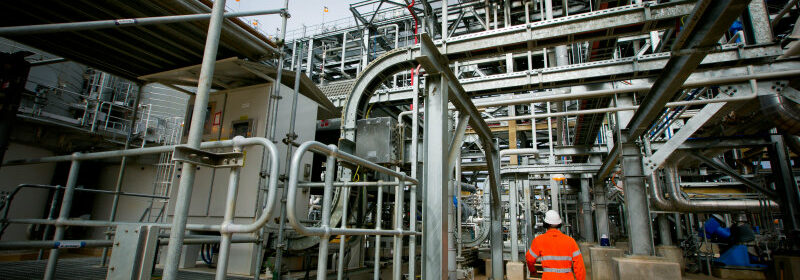Greens, gas lobby both claim climate policy will prevent new gas projects

Gas projects that could fill a critical shortage in the electricity grid in the next three years face new challenges following the passing of the Anthony Albanese government’s climate policy as the industry claims the beefed-up safeguard mechanism will add further burdens to new production.
The Albanese government on Monday cut a deal with the Greens to impose new laws that force the nation’s 215 biggest carbon polluters to cut their greenhouse emissions as well as tougher controls on new fossil fuel projects.
Greens leader Adam Bandt and the gas lobby both claimed the safeguard mechanism would prevent new gas projects from going ahead, but disagree on the need to increase gas supply.
Earlier this month, the Australian Energy Market Operator warned new streams of gas supply are urgently needed to fill shortages in NSW and Victoria within three years to remove the risk of blackouts.
Gas fields in Bass Strait, which have traditionally supplied the bulk of east-coast gas demand, are rapidly drying up, and AEMO said Victoria could endure a shortfall during extreme weather as soon as this winter. By 2027, states including Victoria, NSW and South Australia would face yearly gas supply deficits unless new gas supplies were made available, it said.
But the gas industry is warning the controls on greenhouse pollution will curb investment in new projects such as Santos’ proposed gas field at Narrabri in NSW.
The Greens’ deal to pass the safeguard mechanism included a hard cap on overall emissions to ensure real-world emissions reduction.
New projects will also have to comply with international best standards, as determined by the government at the time of development, and are likely to include a requirement to achieve net zero emissions.
Australian Petroleum Production and Exploration Association chief executive Samantha McCulloch said the new regime would create more hurdles for industry and reduce investments in new gas projects.
“New gas supply investment needs policy and regulatory certainty but instead, the Labor-Greens deal creates additional barriers to investment, further diminishing the investment environment and adding to the growing list of regulatory challenges facing the sector,” McCulloch said.
AEMO says states face yearly gas supply deficits unless new gas supplies were made available.Credit:Bloomberg
The Greens deal also requires a review from 2026 into the use of offsets compared to emissions-reduction technology, which could result in further rules imposed on polluters.
Bandt, who has repeatedly called for a portion of Australia’s vast gas exports to be redirected into the domestic market in the event of a shortfall, said his amendments will block up to half of the publicly announced coal and gas projects he claimed were set to be developed in coming years.
“Coal and gas have taken a huge hit. The Greens have stopped many of the 116 new coal and gas projects in the pipeline from going ahead,” he said.
However, Grattan Institute energy program director Tony Wood said it was “highly unlikely” that most of those projects would be developed, with the majority yet to receive final funding approval from the proponents or development approvals from state and federal governments.
He also said the government’s safeguard mechanism is largely unchanged from the commitment it took to the election and gas companies have factored it into investment decisions for more than a year.
“When a new agreement with enormous compromise is reached, the other sides will have to claim victory and their constituents will say they didn’t get enough for their side,” Wood said.
“But I have not seen any evidence of the investment uncertainty [the gas industry is] talking about,” he said.
Santos is yet to make a final investment decision on the $3.6 billion Narrabri project despite it receiving state and federal development approvals.
The incoming NSW Labor government has backed the development, which would boost the state’s energy security, despite strong opposition from environmental advocates and the local farming community.
Wood pointed out that under the safeguard mechanism, Climate Change and Energy Minister Chris Bowen had set the rate of emissions reduction above what was required to reach Australia’s climate target, leaving a reserve of 17 million tonnes of greenhouse emissions that could potentially be allocated to new projects.
Cut through the noise of federal politics with news, views and expert analysis from Jacqueline Maley. Subscribers can sign up to our weekly Inside Politics newsletter here.
Most Viewed in Politics
From our partners
Source: Read Full Article
